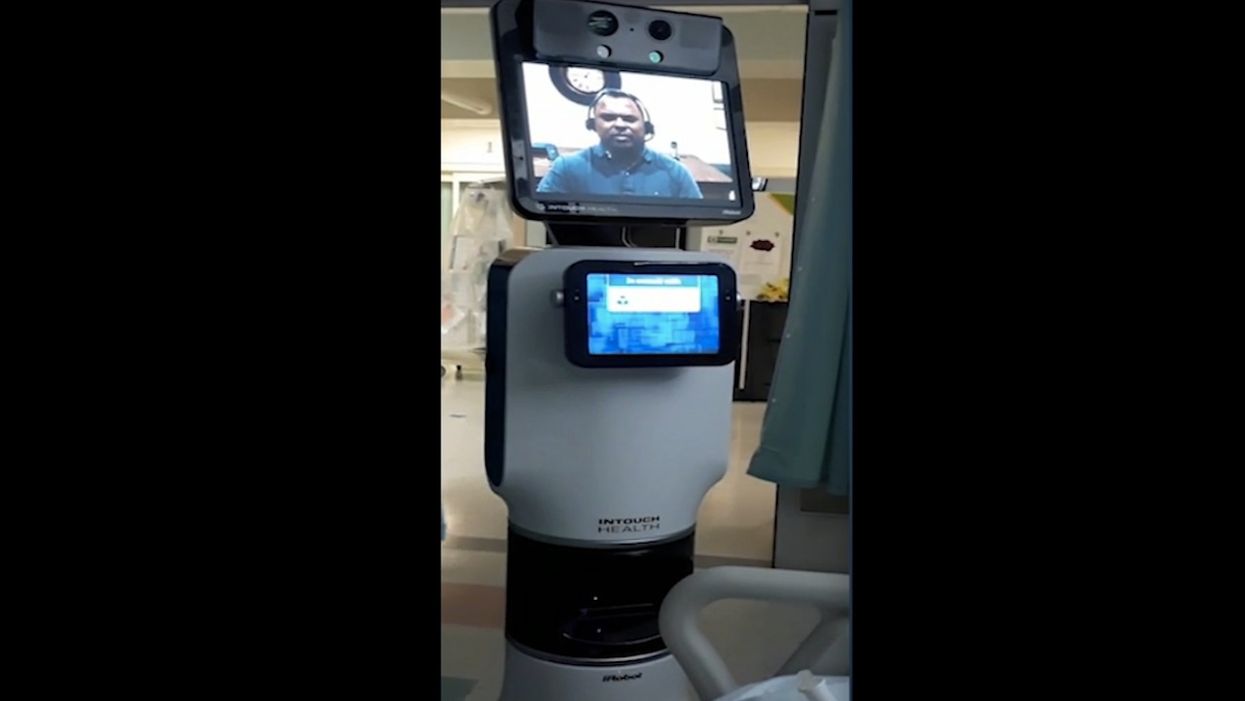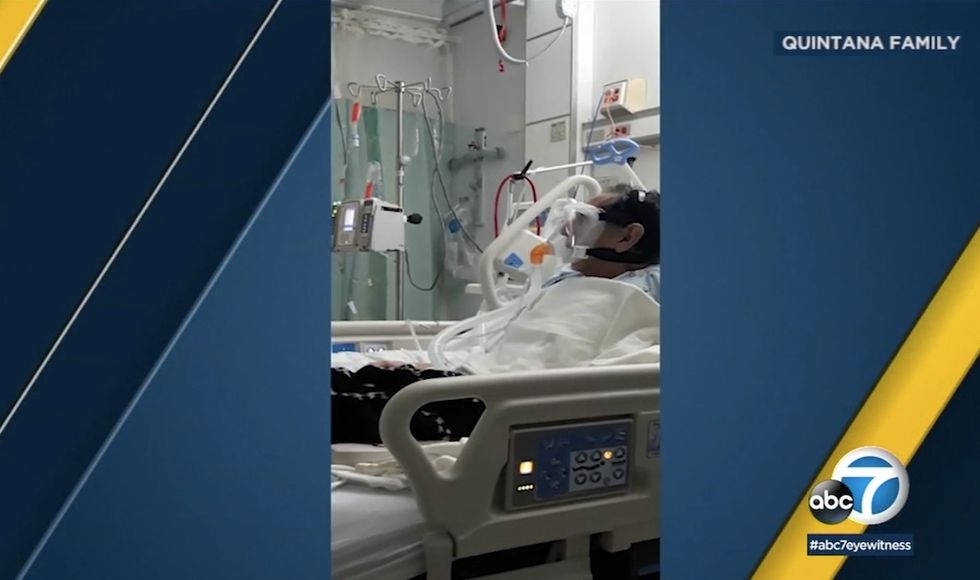
Image source: KABC-TV video screenshot

'It should be done by a human being and not a machine'
Ernest Quintana, 78, was taken by ambulance to a hospital last week, unable to breathe — his family knew he was dying of chronic lung disease, The Associated Press reported.
But what they were told at Kaiser Permanente Medical Center in Fremont, California — and particularly how the news was delivered — was awful.
Quintana's granddaughter Annalisia Wilharm, 33, was alone with him when a nurse came by his room to say a doctor would be making his rounds — and then a robot machine rolled in, the AP said.
The robot had a video screen, and a doctor appeared on it, the outlet noted.
"This guy cannot breathe, and he's got this robot trying to talk to him," Willharm recalled to the AP. "Meanwhile, this guy is telling him, 'So we've got your results back, and there's no lung left. There's no lung to work with.'"

Wilharm told the outlet she had to repeat what the doctor said to her grandfather since he was hard of hearing in his right ear and the machine couldn't maneuver to the other side of the bed.
"So he's saying that maybe your next step is going to hospice at home. Right?" Wilharm was heard saying in a video she recorded of the visit, the AP reported.
"You know, I don't know if he's going to get home," the doctor said, the outlet noted.
The doctor on the robot video said Quintana would likely die within days, the AP reported.
"If you're coming to tell us normal news, that's fine," Quintana's daughter Catherine Quintana told the outlet. "But if you're coming to tell us there's no lung left, and we want to put you on a morphine drip until you die, it should be done by a human being and not a machine."
Quintana died last Tuesday, two days after being taken to the hospital, the AP reported.
Michelle Gaskill-Hames, senior vice president of Kaiser Permanente Greater Southern Alameda County, told the outlet that the incident was highly unusual and said officials "regret falling short" of the patient's expectations.
But the hospital also defended its use of telemedicine and added to the AP that its policy is to have a nurse or doctor in the room at the time of remote consultations.
"The evening video tele-visit was a follow-up to earlier physician visits," Gaskill-Hames told the outlet in a written response. "It did not replace previous conversations with patient and family members and was not used in the delivery of the initial diagnosis."
Hospital officials added that telemedicine doesn't replace in-person conversations with the patient and loved ones, the AP noted.
Steve Pantilat — chief of the palliative medicine division at University of California, San Francisco — told the outlet he doesn't know the details of the Quintana case but said robot technology has done wonders for patients and their families, some of whom are too far away for in-person visits.
Pantilat added to the AP that video meetings are warm and intimate — and that not all in-person doctor visits are compassionate.
"No matter how well we deliver very difficult news, it's sad, and it's hard to hear," he noted to the outlet.
Wilharm told the AP that her grandfather — a family man — deserved better. She added to the outlet that after getting the bad news, Quintana told her who should get what and made her promise to look after her grandmother.
"He was such a sweet guy," she told the AP.